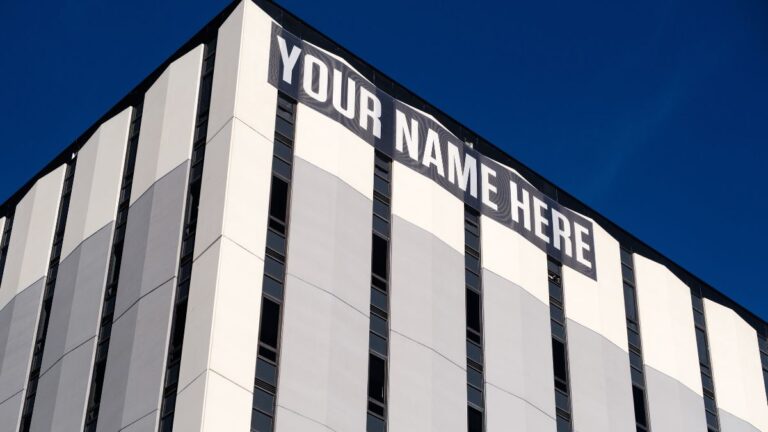Hotel Deposits: What Are They & How Do They Work?

As participants in Amazon Associates and other programs, we earn from qualifying purchases. This comes at no additional cost to you. For more details, see our Affiliate Disclosure.
When planning a trip or holiday, there are a multitude of details that travelers need to consider. Among these, the topic of hotel deposits often comes up, leading to a slew of questions. What exactly are hotel deposits? Why are they necessary? And most importantly, how do they work? In this article, we’ll shed light on the ins and outs of hotel deposits, ensuring that you’re well-prepared for your next travel experience.
HIGHLIGHTS
- Hotel deposits serve as a security measure for hotels, ensuring guests cover potential incidental costs or damages.
- Exchange rates and foreign transaction fees significantly impact international hotel deposits, potentially altering the actual amount you pay.
- Hotel deposits are typically refunded, but the duration can vary with some taking just a few days and others up to several weeks.
What are Hotel Deposits?
A hotel deposit, often referred to as a security deposit or incidental deposit, is a specific amount of money that a hotel requires guests to provide when booking or checking into a room. This deposit is typically held to ensure that guests pay for any additional costs incurred during their stay (like mini-bar charges, room service, or damages) or as a guarantee for the room reservation itself.
Types of hotel deposits:
- Reservation Deposits: This is a partial pre-payment to secure a room booking. It ensures that the hotel reserves the room for the guest and can be a fixed amount or a percentage of the total room charge.
- Security or Incidental Deposits: Collected during check-in, this deposit covers potential incidental charges or damages. It’s usually returned (or the hold is released) at check-out, provided there are no additional charges or damages.
Why do Hotels Ask for a Deposit?
Hotels request deposits for a variety of reasons, all of which are geared towards ensuring smooth operations and minimizing financial risk. Here’s a breakdown of why hotels ask for a deposit:
Guaranteeing Reservations: By taking a deposit, hotels can be more certain that guests are committed to their bookings. This minimizes the risk of no-shows, which can lead to revenue loss, especially during peak seasons or in high-demand locales.
Covering Incidental Costs: During a guest’s stay, there may be additional costs that arise outside of the room rate, such as minibar usage, room service, laundry, or phone calls. A deposit ensures that the hotel can cover these charges if a guest forgets to settle them or disputes them at checkout.
Protection Against Damages: Accidents or negligence can sometimes result in damage to the room or hotel property. The deposit acts as a security measure, allowing the hotel to cover repair or replacement costs without having to chase guests for payment.
Preventing Fraud: By requiring a valid credit or debit card for a deposit, hotels can minimize the risk of fraud. It adds an extra layer of verification to ensure that the guest is genuine and has the means to pay.
Ensuring Smooth Cash Flow: Especially in the case of advance booking deposits, they can aid in the hotel’s cash flow management. Receiving funds in advance helps with operational expenses and planning.
Upholding Hotel Policies: Deposits can be retained, either in full or in part, if guests violate hotel policies. This can include scenarios such as early departure, late cancellation, or smoking in a non-smoking room.
Encouraging Careful Use of Facilities: When guests know that a certain amount of their money is on the line, they might be more careful about how they treat the room and hotel facilities, leading to a more respectful use of the property.
While some guests might view deposits as an inconvenience, they play a crucial role in the hotel’s operational and financial strategies, ensuring the sustainability of their business and the satisfaction of all guests.
How Do Hotel Deposits Work?
Hotel deposits are typically sums of money that a hotel holds from a guest, either as a guarantee for a reservation, potential incidentals, or both. When a guest books a room, especially if it’s done well in advance, the hotel might ask for an upfront deposit. This is often a percentage of the total room rate or sometimes a fixed sum, which secures the room for the specified dates.
Once a guest arrives, the hotel might place another hold on a credit or debit card for potential incidental charges. These can include services and amenities that aren’t part of the initial room rate, such as minibar costs, room service, pay-per-view movies, or spa treatments. This hold acts as a pre-authorization, meaning the funds are not actually taken from the guest’s account but are instead reserved to cover potential charges.
Upon checking out, the hotel will then calculate the final bill. If there are additional charges, they’ll be deducted from the pre-authorized amount. If not, the full amount is released. However, it’s important to note that the release time can vary. While the hotel might lift the hold immediately, the guest’s bank might take several days to process and reflect this in the account.
For guests who don’t possess a credit or debit card, some hotels offer the option of a cash deposit. In such cases, the cash is taken upfront and then refunded upon checkout, after any additional charges have been deducted.
What Does “100 Deposit Per Stay” Mean?
The term “100 deposit per stay” means that the hotel requires guests to provide a deposit of $100 for the entire duration of their stay. This deposit is typically held to cover potential incidental charges or damages that might occur during the guest’s stay.
At the end of the stay, if there are no additional charges or damages, the hotel will return the full $100 to the guest. If there are charges that amount to less than $100, the difference will be refunded.
Do Hotels Accept Debit Cards for Deposit?
Yes, many hotels do accept debit cards for deposits. However, when using a debit card, the hotel often places a hold on a specified amount to cover potential incidentals or damages.
This hold temporarily reduces the available balance in the guest’s bank account. It’s important for guests to be aware that, even though the hotel might release the hold immediately upon checkout, it can take several days for the bank to process the release and reflect the available funds back in the account.
Due to this delay and potential issues with overdrafts, some travelers prefer to use credit cards for hotel deposits instead of debit cards. It’s always a good idea for guests to check with the hotel in advance regarding their specific deposit policies and practices.
Do Hotels Take Cash Deposits?
Yes, some hotels do accept cash deposits, but the practice is becoming less common, especially in larger hotel chains and in certain countries or regions. When a hotel accepts a cash deposit, the guest provides a specified amount of money upfront. This amount is held by the hotel to cover potential incidental charges or damages during the guest’s stay.
At checkout, if there are no additional charges, the hotel returns the full cash deposit to the guest. If there are charges, they are deducted from the cash deposit, and the remaining balance is returned.
However, there are a few things to consider regarding cash deposits:
- Higher Amounts: Hotels that accept cash deposits might require a larger amount than they would if the deposit were placed on a credit or debit card.
- Verification: Some hotels might request additional identification or documentation when accepting a cash deposit to ensure legitimacy.
- Inconvenience: Carrying large amounts of cash can be inconvenient and pose safety concerns for travelers.
- Policy Variations: Each hotel has its own policies regarding cash deposits. It’s essential for travelers to inquire directly with the hotel beforehand to understand their specific requirements and procedures.
While cash deposits are an option in some establishments, travelers should be prepared for varying policies depending on the hotel and its location.
Varied Deposit Amounts: Why It Differs From One Hotel to Another
Deposit amounts can vary widely from one hotel to another due to several factors that influence a hotel’s decision on how much to charge. Here’s a breakdown of why deposit amounts can differ:
- Hotel Classification: Luxury and high-end hotels often have more expensive amenities and services. To cover potential expenses from incidentals or damages, these hotels might require a higher deposit than mid-range or budget hotels.
- Location: Hotels in prime locations or major tourist spots might set higher deposits due to increased demand and the higher costs associated with maintaining a hotel in such areas.
- Length of Stay: Some hotels adjust the deposit amount based on the duration of a guest’s stay. A longer stay might result in a higher deposit to account for potential incidentals over multiple days.
- Hotel Amenities: If a hotel offers a wide range of premium services, like spa treatments, room service, or a well-stocked minibar, the deposit might be higher to account for potential use of these services.
- Historical Data: Hotels may use past data on guest behavior and expenses to set their deposit amounts. If a hotel frequently encounters unpaid charges or damages, it might opt for a higher deposit as a precaution.
- Special Events or Seasons: During peak seasons or special events, hotels might raise their deposit amounts. This can be due to higher demand, increased prices, or the anticipation of larger crowds which can result in more wear and tear.
It’s always best for travelers to check with hotels directly to understand specific deposit requirements.
Refunds and Hotel Deposits
Refunds related to hotel deposits are a vital aspect of hotel management and for guests to understand, as they have direct implications on a traveler’s finances. Here’s a closer look:
Before delving into refunds, it’s essential to understand that a hotel deposit can either be a charge on your card (an actual transaction) or an authorization (a temporary hold on a specified amount). The latter is more common, especially for incidental deposits.
Conditions for Full Refund
- No Additional Charges: If a guest hasn’t incurred any additional charges during their stay, such as room service, minibar usage, or pay-per-view movies, they should expect a full refund or release of the held amount.
- No Damages: The room and any property of the hotel should be left in the same condition as it was at check-in, barring regular wear and tear. If there’s any damage, repair or replacement costs may be deducted from the deposit.
Partial Refunds
- Incidental Costs: If a guest has used any paid services or amenities during their stay, the cost of these will be deducted from the deposit. The remaining amount will be refunded.
- Cancellation Policies: If a guest cancels their reservation after the hotel’s stipulated free-cancellation period, the hotel might retain a part or all of the reservation deposit.
Time Frame for Refunds
- Credit Card Holds: If the deposit was an authorization on a credit card, the hotel typically releases the hold upon checkout. However, the time it takes for the funds to appear back in the account can vary based on the bank’s processes, usually ranging from 24 hours to a week.
- Cash Deposits: Refunds for cash deposits are often given during checkout after the hotel ensures there are no additional charges.
Potential Delays: It’s important to monitor refunds to ensure they process correctly. Sometimes, due to system errors, miscommunication, or bank delays, the refund might take longer than anticipated. In such cases, guests should contact the hotel’s billing department and, if necessary, their bank.
How Long Do Hotels Hold Deposit?
Hotels typically hold a deposit for the duration of a guest’s stay. Once the guest checks out and settles any outstanding charges, the hotel releases the deposit. However, while the hotel might release the hold immediately, the time it takes for the funds to appear back in the guest’s account depends on the bank’s processing times, which can range from 24 hours to several days.
Factors Affecting the Hold Duration:
- Type of Deposit: Reservation deposits are usually held until the stay is completed or the reservation is canceled, while incidental or damage deposits are held until checkout.
- Payment Method: Credit card holds are more common and are typically released faster than debit card holds. For cash deposits, the refund is often given immediately upon checkout after confirming no additional charges.
Bank Delays: After the hotel releases the deposit, the duration it takes for the funds to reflect in a guest’s account is governed by the bank’s policies. It’s crucial to understand that even if the hotel releases the hold promptly, the bank might take longer to process the release.
Factors That Can Impact Your Refund
Various factors can impact the refund of a hotel deposit, affecting either the amount refunded or the time it takes to process. Here are some of the most common:
- Incidental Charges: Any charges for services or amenities used during your stay, such as room service, minibar expenses, pay-per-view movies, or spa treatments, can be deducted from your deposit.
- Room Damages: If there’s damage to the room or any hotel property, repair or replacement costs may be deducted from your deposit.
- Cancellation Policies: Most hotels have a cancellation policy specifying how much notice is required for a full refund. Canceling outside of this window might result in a partial refund or, in some cases, no refund at all.
- No-Show Fees: If you don’t arrive at the hotel on the scheduled check-in date without prior cancellation, the hotel may retain a part or all of your deposit as a no-show fee.
- Bank Processing Times: After the hotel releases the deposit or initiates the refund, the time it takes for the amount to reflect in your account can vary depending on your bank or credit card company’s processing times.
- Payment Method: The method you used to pay can impact the refund process. Credit card refunds can be quicker than debit card refunds. Some hotels might take longer to process refunds for payments made through third-party platforms or apps.
- Peak Seasons: During high-demand periods, such as holidays or special events, the refund process might face slight delays due to the volume of check-ins and check-outs.
- Administrative Errors: Mistakes, though rare, can happen. Human error, system glitches, or miscommunication can sometimes delay or affect refunds.
- Third-party Bookings: If you’ve booked through a third-party website or travel agent, the refund process and policies might differ from direct bookings with the hotel. There might also be additional layers of communication required, potentially slowing down the process.
- Local Regulations: In some locations, local laws or regulations might dictate specific refund policies or timelines that hotels must adhere to.
Understanding these factors can help travelers manage their expectations and take proactive measures to ensure a smooth refund process.
Navigating Hotel Deposit Policies
Navigating hotel deposit policies can sometimes feel like a daunting task, especially with the vast range of hotel types and their varying policies. However, being well-informed can save you from unexpected charges and delays.
Hotel deposits serve as a security measure for hotels. They’re designed to cover potential additional charges or damages a guest might incur during their stay. Usually, this deposit is either a set amount or a percentage of the room’s rate.
The deposit amount can vary widely. Factors like the hotel’s classification, location, amenities, and historical data on guest behavior all play a role in determining this amount. For instance, a luxury hotel in a prime location might require a higher deposit than a budget motel in a small town.
It’s essential to clarify if the deposit is an actual charge or just an authorization. While charges deduct money from your account, authorizations only place a temporary hold. The latter is more common for incidental deposits, and once you check out without any additional charges, the hold is typically released.
The method of payment can also influence the deposit process. While most establishments accept credit cards, some might also take debit cards or even cash. However, each has its nuances. For example, debit card holds might take longer to release compared to credit cards.
Cancellation policies are another crucial aspect. Many hotels offer free cancellations up to a certain point, but if you cancel after this window, you might forfeit a part or all of your reservation deposit. Always read the fine print or ask the hotel directly about their policies.
Lastly, always monitor your refunds. After you check out, it’s good practice to keep an eye on your bank or credit card statements to ensure the deposit is returned timely. If there’s a delay, reaching out to the hotel or your bank can help resolve the issue.
How to Avoid Hotel Deposit?
Avoiding hotel deposits might not always be possible, as they’ve become a standard practice for many establishments. However, there are strategies you can employ to minimize or bypass them:
Choose the Right Hotel: Some budget or family-run hotels might not require a deposit, especially if they lack premium amenities like a minibar or room service. Before booking, inquire about their deposit policy.
Loyalty Programs: If you’re a frequent guest or a member of a hotel’s loyalty program, some hotels might waive the deposit as a gesture of trust and appreciation. It’s worth asking or utilizing your member benefits.
Third-party Booking: Some third-party booking sites might have arrangements with hotels where deposits aren’t necessary. However, this can also come with its set of challenges, like stricter cancellation policies.
Pay in Advance: Some hotels might waive the deposit if you pay the full amount of your stay upfront. This gives them security about the payment and can sometimes lead to discounts.
Negotiate: Depending on the situation and hotel, if you’re staying for a short period or have a track record with the establishment, you might be able to discuss the deposit and get it reduced or removed.
Use a Credit Card: While this doesn’t avoid the deposit, using a credit card usually results in an authorization rather than a charge, which is easier to manage and gets released faster than debit card holds.
Book Directly: Sometimes, by booking directly through the hotel’s website or over the phone, you can discuss deposit policies more transparently and might find flexibility.
While it’s possible to find ways around deposits, they’re in place to protect the hotel’s interests. Always communicate openly with the hotel, and be wary of deals that seem too good to be true.
Tips for Negotiating Deposit Terms
Negotiating deposit terms with a hotel can be a delicate task, but with the right approach and preparation, you might find some flexibility. Here are some tips to help you in the negotiation process:
- Establish a Relationship: If you’re a repeat guest or plan to stay for an extended period, leverage this to your advantage. Hotels often value loyal customers and may offer better terms to encourage continued patronage.
- Be Polite and Professional: Courtesy can go a long way. A calm, friendly demeanor can open doors to negotiations that might be closed to a confrontational approach.
- Research and Compare: Before negotiating, be aware of the deposit policies of similar hotels in the area. If competitors offer more favorable terms, mention this (tactfully) during your discussion.
- Clarify Your Concerns: Instead of flat-out asking for a reduced deposit, explain your reservations. Whether it’s a short stay, financial concerns, or past experiences, clear communication can help the hotel understand your perspective.
- Book Directly: Booking through the hotel directly (either via their website or phone) can sometimes offer more wiggle room in negotiations than through third-party platforms.
- Offer Alternatives: If the hotel is hesitant about reducing the deposit, propose other solutions. This could be paying a portion of the stay upfront, providing additional identification, or agreeing to certain terms in writing.
- Highlight Good History: If you have a positive track record with other hotels (no damages, no extra charges), mention this. Some hotel chains even keep internal guest scores, which could be beneficial if you’ve stayed within their network before.
- Ask About Loyalty Programs: If you’re not already a member, inquire about the hotel’s loyalty program. Members often enjoy perks, which might include reduced or waived deposits.
- Understand the Final Terms: If you successfully negotiate the deposit terms, ensure you get a clear understanding of the agreement in writing. This will help avoid misunderstandings later.
- Be Prepared to Compromise: Understand that while negotiation is a two-way street, hotels have deposit policies to protect their interests. It’s essential to be flexible and open to a middle ground.
Negotiating deposit terms requires a mix of tact, understanding, and information. Approaching the situation with respect and a willingness to find a solution beneficial to both parties will increase your chances of success.
Reading the Fine Print: Understanding the Hotel’s Terms and Conditions
Whenever you book a hotel, it’s essential to familiarize yourself with its terms and conditions. These are the specific rules and guidelines that both you and the hotel agree to uphold.
Why it Matters: Hidden within the ‘fine print’ are details that could impact your stay, such as the hotel’s cancellation policies, check-in/check-out times, and, of course, deposit requirements. By not reviewing these, you might find unexpected charges or conditions.
Cancellation and No-show Policies: One of the most vital sections to review. Some hotels offer free cancellation up to a certain point, while others might charge a fee. A no-show might even cost you the entire stay’s amount.
Deposits and Holds: The terms will outline the hotel’s policy on deposits—how much, when it’s charged, and the conditions for its return. Moreover, understanding whether it’s an actual charge or just a hold can help set your expectations on refund timings.
Additional Fees: Hotels might have additional fees that aren’t immediately obvious, such as resort fees, parking charges, or fees for using certain amenities. These can add up, so it’s good to be aware.
Liabilities and Responsibilities: This section outlines what the hotel is liable for and what you’re responsible for during your stay. It can include scenarios such as lost items, damages, or accidents.
Payment Methods: Not all hotels accept all types of payment. The terms will often specify which methods are accepted and if there are any additional charges associated with them.
While the terms and conditions can seem tedious, they hold crucial information. Taking a few minutes to review them can save you from potential surprises, making your stay more relaxed and enjoyable. Always remember: knowledge is power, even in the world of hotel bookings!
International Travel and Hotel Deposits
International travel brings a host of exhilarating experiences, from immersing oneself in new cultures to tasting diverse cuisines. However, it also comes with certain challenges, one of which is navigating hotel deposits. When traveling abroad, understanding hotel deposits in an international context can be a key factor in planning your budget and ensuring a smooth lodging experience.
Currency Differences: The first thing to note is the currency. Hotel deposits in another country might be in the local currency, which can differ significantly from your home currency. Always convert the deposit amount to your native currency to get an accurate sense of the cost.
Exchange Rate Fluctuations: The value of currencies can fluctuate daily. A deposit amount might seem reasonable one day and expensive the next. If possible, lock in your hotel rate and deposit when the exchange rate is favorable.
Foreign Transaction Fees: Some banks or credit card companies charge fees for international transactions. This can add to the cost of your hotel deposit. It’s worth checking in advance and considering cards that don’t charge these fees for travel.
Different Deposit Practices: Each country, or even each hotel within a country, can have its own standards and practices for deposits. For example, in some parts of Europe, it might be common to pay for the hotel room entirely upfront, while in parts of Asia, a nominal deposit might be more standard.
Refund Processes: Getting a deposit refunded can be different when dealing with international banks. It might take longer due to the cross-border nature of the transaction, and there could be additional fees.
Local Regulations: Some countries have specific regulations around hotel bookings, deposits, and consumer rights. It can be beneficial to familiarize yourself with these, especially if you’re staying for a longer duration or booking a high-value property.
Language Barriers: Communication can sometimes be a hurdle. If you have questions about the deposit or any terms, it might be worthwhile to have them translated to ensure you fully understand.
Use of Technology: Mobile banking apps and currency conversion tools can be a lifesaver. They can help you track your expenses, understand the real-time value of deposits, and even facilitate quick payments or transfers if needed.
While international travel can add layers of complexity to hotel deposits, a little preparation and understanding can go a long way. By considering the factors mentioned above and staying informed, you can navigate the world of international hotel deposits with confidence. Safe travels!
Differences in Deposit Practices Around the World
When traveling globally, it’s essential to realize that hotel deposit practices can vary widely depending on the region or country. These differences are influenced by factors such as cultural norms, economic conditions, tourism trends, and local regulations. Let’s take a closer look at how deposit practices differ around the world:
North America (U.S. & Canada):
- It’s standard for hotels to take a credit card authorization upon check-in to cover potential incidental expenses.
- The deposit often isn’t charged unless there are additional expenses or damages.
- Many establishments also accept debit cards, but the hold might take longer to release compared to credit cards.
Europe:
- Deposits in Europe can vary widely, with some hotels in popular tourist destinations requiring payment upfront, especially during peak seasons.
- In many European countries, boutique or family-run establishments might ask for a direct bank transfer as a deposit.
- Credit card holds for incidentals are also common in larger hotel chains.
Asia:
- In many Asian countries, paying a deposit in cash upon check-in is more commonplace, especially in budget or local hotels.
- Luxury hotels often follow the Western practice of credit card authorizations.
- In some places, the deposit amount might be nominal, while in others, it might cover the entire stay or more.
Australia & New Zealand:
- Similar to North America, credit card authorizations upon check-in are the norm.
- Some hotels might offer options to pay deposits through bank transfers or online payment gateways.
Africa:
- Deposit practices can vary significantly depending on the country. In tourist-heavy regions like Egypt or Morocco, credit card holds might be standard in larger hotels.
- In some parts of Africa, especially in remote areas or eco-lodges, upfront payment or a percentage of the stay might be required as a deposit.
South America:
- Hotels in major cities and tourist destinations often adopt credit card holds for deposits.
- In some regions, especially in budget accommodations, cash deposits are not uncommon.
- Travelers might also encounter establishments that prefer local currency over foreign credit cards due to transaction fees.
Middle East:
- Luxury hotels usually adopt credit card holds or authorizations.
- It’s also common in some countries to ask for an upfront percentage of the stay, especially during major events or festivals.
While there are overarching global trends in hotel deposit practices, specifics can change based on location. As always, it’s wise for travelers to research or inquire directly with the hotel about their deposit policy before making any reservations. This not only helps in budget planning but also ensures a smoother check-in experience.
Currency Considerations: Exchange Rates and Foreign Transaction Fees
Navigating the financial aspects of international travel can be daunting. Two pivotal components to consider are exchange rates and foreign transaction fees. Both can have a noticeable impact on your travel expenses, especially when it comes to hotel deposits and other sizable transactions. Here’s what you need to know:
Exchange Rates:
- What They Are: An exchange rate determines how much one currency is worth in terms of another. It’s the rate at which you can exchange your home currency for the local currency of the country you’re visiting.
- Fluctuations: Exchange rates aren’t static; they can fluctuate due to various economic factors, including inflation rates, interest rates, and political stability. This means the amount you spend today might be different tomorrow.
- Impact on Hotel Deposits: If a hotel quotes its deposit amount in local currency, the actual amount you pay in your home currency can vary based on the current exchange rate.
- Shopping Around: It’s worthwhile to check different currency exchange platforms or financial institutions. While the global market determines the base rate, the margin or fee added on top can vary.
- Timing: If possible, monitor exchange rates leading up to your trip. Booking and paying for your hotel when the exchange rate is favorable can lead to savings.
Foreign Transaction Fees:
- What They Are: These are fees charged by your bank or credit card company for processing a transaction in a foreign currency or through a foreign bank.
- How Much?: Typically, foreign transaction fees are a percentage of the amount of each transaction, often around 1% to 3%.
- Impact on Hotel Deposits: If your hotel deposit is, for instance, $300, and your bank charges a 3% foreign transaction fee, that’s an additional $9 just in fees.
- Avoiding the Fees: Some credit cards are designed for travelers and don’t charge foreign transaction fees. If you travel frequently, it might be worth considering one of these cards.
- Cash vs. Card: While using cash can sometimes help you avoid transaction fees, withdrawing cash abroad can come with its own set of fees. Plus, there’s the convenience and security aspect of using a card to consider.
While exchange rates and foreign transaction fees can seem complex, being informed can lead to better financial decisions while traveling. Always read the fine print, consider the total cost of transactions, and equip yourself with tools or cards that cater to the international traveler.






